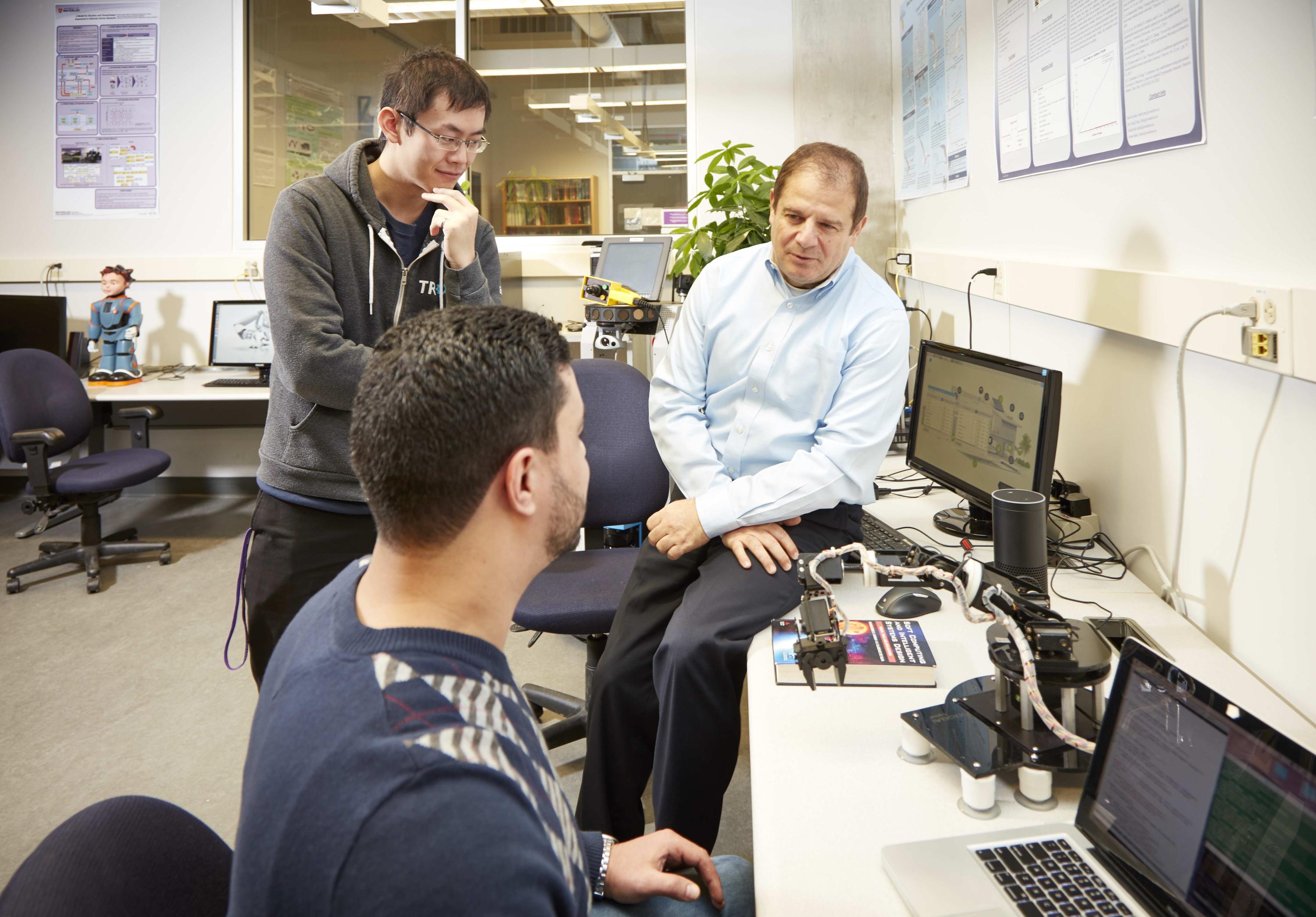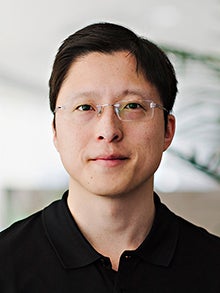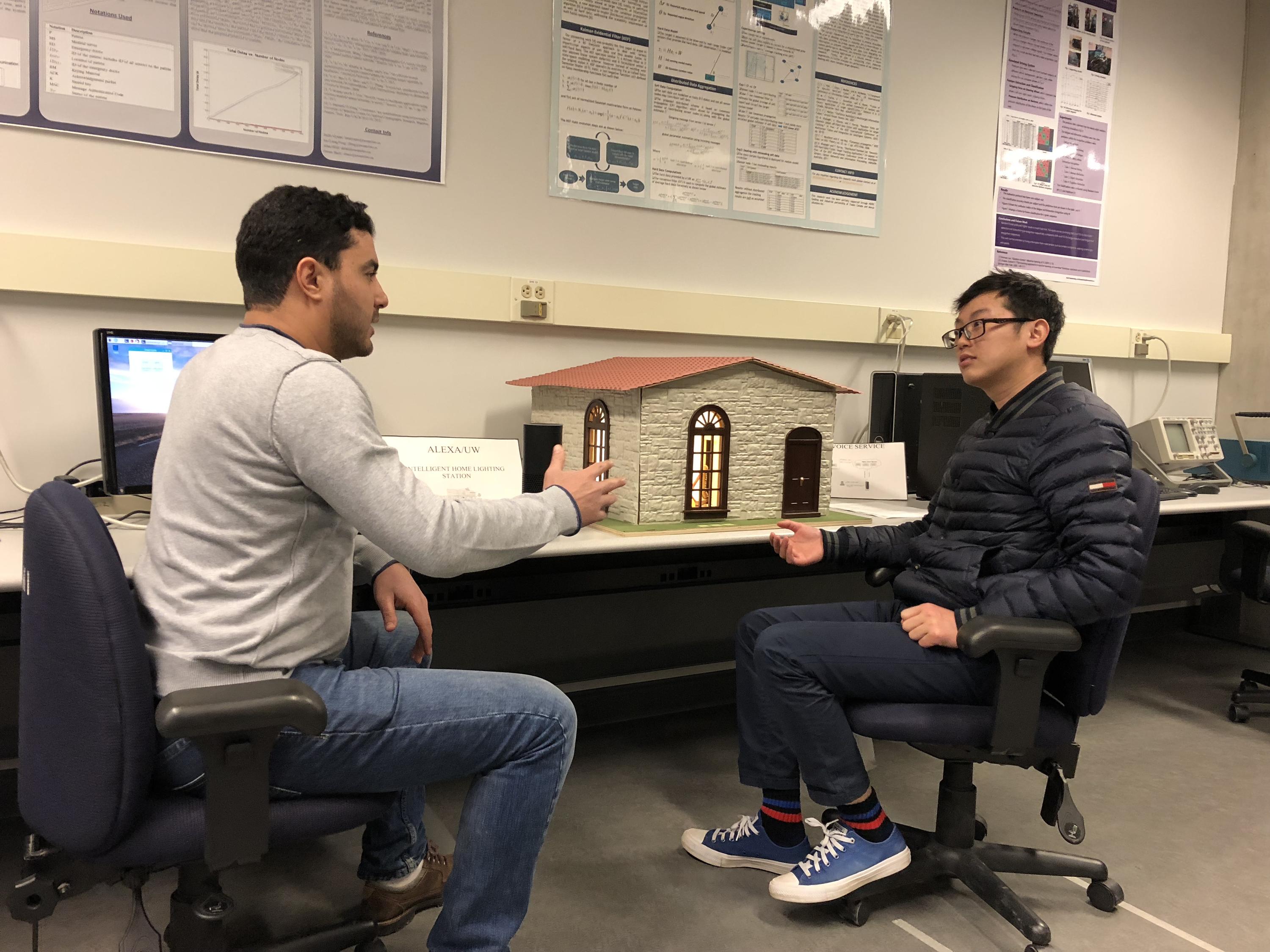
The Alexa Program at Waterloo Engineering
Launched in 2017, Alexa for Undergraduate and Graduate students is now in its second successful year.
In its first year, the Alexa platform was successfully introduced to 600+ undergraduate engineering students as part of the Waterloo Engineering curricula, specifically in the following courses:
- Fundamentals of Computational Intelligence (ECE457B) – an elective course offered to all senior year engineering students
- Mechatronics Data Structures (MTE140) – a first year course in the Mechatronics Engineering program,
- Biomedical Data Structures (BME122) – a first year course in the Biomedical Engineering program
- A further 50 graduate engineering students, enrolled in the Intelligent Systems Design Course (ECE657) also received hands on Alexa platform exposure
In 2018, the Alexa program will engage students in the following courses:
- Fundamentals of Computational Intelligence (ECE457B) with 65-85 students in class, and an estimated 12-16 student project using Alexa
- Mechatronics Data Structures (MTE140) – a first year course in the Mechatronics Engineering program, with 330 students
- Biomedical Data Structures (BME122) – a first year course in the Biomedical Engineering program with 120 students
- Software Design (SYDE322), with 30 students.
- Intelligent Systems Design (ECE 657), a graduate course, with 30-50 students, and approximately 8 student projects using Alexa.
The Creative Alexa – Capstone Design projects and entrepreneurial teams are encouraged to use Alexa in the projects. To assist with this, Alexa Demo Days are held in March of each year to expose students to the platform. Six projects using the Alexa platform were initiated, with more anticipated for 2018/2019.
Alexa Ambassadors 2018/2019
In Year One, the Alexa program was facilitated by an Alexa Fellow, with much success. In Year Two, we are introducing three Alexa Ambassadors, to allow broader promotion and reach through the faculty members/Alexa Ambassadors:
Alexander Wong, Canada Research Chair in Artificial Intelligence and Medical Imaging, Systems Design Engineering - Prof. Wong is a leading expert in operational artificial intelligence (with a focus on scalable and explainable

Igor Ivkovic, Lecturer, Systems Design Engineering – Dr. Ivkovic’s theoretical focus is on integration, utilization, and consistency management in complex information systems. The integration concerns distributing in

Shelley Wang – Vision and Image Processing Lab, an adjunct assistant professor, Dr. Wang’s

Alexa Projects at Waterloo Engineering

In 2017, the Alexa Voice Services technology has been incorporated into several projects and will become part of a bigger 3-month long project that involves intelligent controls, computer vision, and neural networks.
Students are using AVS with natural language processing, AI and human machine interaction, leading to the use of other Amazon services, thereby expanding the Alexa platform universe. It’s a win-win scenario, our students and Amazon are benefiting by these new ways of using Alexa technology.
One project involving Alexa is our “virtual health assistant” which provides health information to the user in relation to prescriptions (drug use). This Alexa enabled device offers web-based information on potential side-effects of drugs prescribed and how it relates to the already diagnosed disease state. Projects like these can have significant impact on the health of people, especially seniors.
For example, in Canada in 2005, pharmacists dispensed an average of 35 prescriptions per person aged 60 to 79, and 74 prescriptions per person aged 80 or older, compared with an overall average of 14 prescriptions per Canadian. People who take several medications at once are more likely to have adverse drug reactions; seniors are particularly vulnerable because of co-morbidity and physiological changes that come with age. Having a voice enabled virtual health assistant, using AVS, could save lives, while easing stress on family members who are concerned about parental health. Projects like these are inspiring to our students to create technologies that improve the human condition.